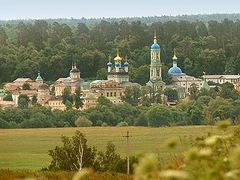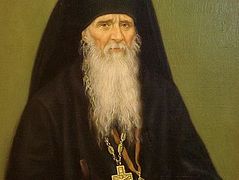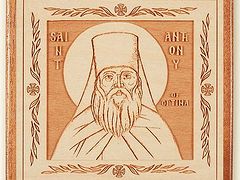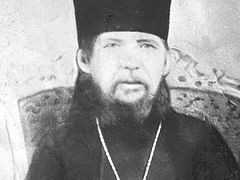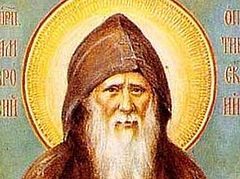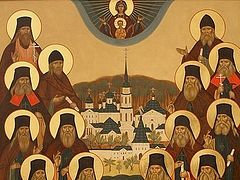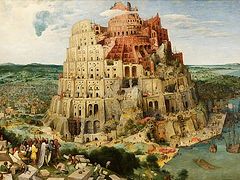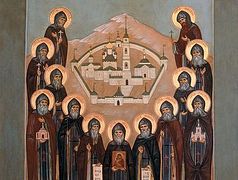Optina Monastery has always been one of those sacred places to which the souls of those hungering for salvation have always gone for spiritual bread. “If you want to fundamentally get to know Christianity,” said Ivan Kireyevsky, “then you must get to know monasticism and eldership, and for this it is hard to find any better place than Optina Monastery.” Without exaggeration it can be said that it was the brightest spiritual lamp of Orthodox Russia in the nineteenth to early twentieth centuries, lit before God by the Russian people and having an enormous influence on the fate of Russia. Of course, there were many saints in other monasteries as well, but it is difficult to say for sure whether there ever was a place in Russia like Optina Monastery, where a whole community of people was born so renewed by the power of the grace of the Holy Spirit, and which came so close to the ideal of Christian relationships, to the threshold of the Kingdom of Heaven while still here on earth. The monastery’s main holy shrine was its glorious, God-loving elders.
Eldership is a special spiritual union that consists of the voluntary and complete obedience of spiritual children to their spiritual father or elder. St. John Climacus says, “Like a ship having an experienced helmsman with God’s aid safely enters the harbor, so the soul that has a good guide will easily rise to heaven, even though it be guilty of great evil. Just as a man travelling an unknown path without a guide can easily get lost even though he be very intelligent, so also whoever wants to walk the monastic path according to his own will and thinking will easily perish, though he have all the wisdom in the world.” Elders are experienced ascetics and spiritual fathers. Eldership has been known since the very beginning of monastic life. Of the first elders in Rus’ were Sts. Anthony and Theodosius of the Kiev Caves. St. Sergius of Radonezh was also an elder; and a century after him came Sts. Joseph of Volokolamsk and Nilus of Sora.
The first to lay the foundation for eldership in Optina was St. Philaret, Metropolitan of Kiev, who was at that time the bishop of Kaluga—the uncovering of the relics of whom we also celebrate today. He built the skete at Optina Monastery and invited from the Roslavl forest Fathers Moses and Anthony, followers of the Moldavian elder St. Paisius Velichkovsky. A little later they were joined by Elder Leo, who came from the St. Alexander of Svir Monastery. Elder Leo’s wisdom soon made him famous outside the monastery as well. For the sake of his spiritual counsel merchants, noblemen, tradesmen and simple folk both men and women came to the door of his cell from cities and villages. Under Elder Macarius eldership flourished and strengthened even more, and it continued to flourish under these elders’ great successors until the monastery was closed after the revolution. The elders had the special gift of compassionate, sacrificial love. Laying down their lives for all who came, they tried in any way they could to instruct them in the way of truth. They made their own the sorrows and fall of others. They died daily, receiving suffering people to the point of total exhaustion. Every word of an elder had authority, touched the heart, and bedewed it with unearthly power, led it to Heaven, and united it with God. When pilgrims returned from Optina they flew as on wings, carrying within themselves the reflections of that heavenly light, which warmed and illumined their souls in the elder’s tiny cell.
People strove to come to Optina even during the terrible years of atheistic godlessness, just to spend some time upon the holy ground of the monastery, and venerate the graves of the Optina elders. The invisible and great sanctity of Optina, although destroyed and defiled, drew many to itself. The elders continued to help people with their prayers.
Even now they stand before the throne of God, praying for us and ready always to help and console each one of us.


